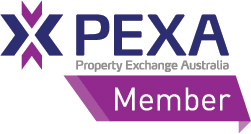Communiqué 2 / 31
December 19th, 2017
Liquor Licensing Reform – Changes Effective 18 December 2017
On 14 November 2017, South Australia’s Parliament passed the Liquor Licensing (Liquor Review) Amendment Act 2017 (the Act).
The Act makes major reforms to SA’s liquor licensing laws which will be implemented in stages. The first stage of reforms commences on 18 December 2017 and includes:
Entertainment consent
- Licensed venues no longer need consent from Consumer and Business Services to host a range of entertainment, including music and comedy. However, consent is still required for “prescribed entertainment” such as boxing, martial arts and sexually explicit entertainment.
- Licensed premises must still follow the conditions of their Development Approval, and any conditions or approvals made under other legislation.
Low risk businesses no longer require a liquor licence.
- Exempt businesses include hairdressers, barbers, cruise ships, retirement villages, gift sellers, jewellers and patient care accommodation no longer require a licence.
- The current exemption for bed and breakfast style accommodation is also being extended to 16 persons (i.e. bed and breakfast’s can now supply liquor without a licence where their capacity is up to 16 persons, previously this was limited to 8 persons).
Temporary approval of responsible persons
- Temporary approval of a responsible person will be available for up to 6 months while the employee undertakes the responsible person vetting process. This is intended to allow employees to start work faster, without businesses needing to wait weeks or months for approval.
- Applications to become a responsible person will remain the same, with temporary approval being granted once the relevant forms have been lodged.
- Individuals can now also apply to become a responsible person (previously applications could only be made by the licensee employing the person).
- The Liquor and Gambling Commissioner will be able to revoke approval of a responsible person at any time.
Supply to Minors
- Stronger penalties for licensees who illegally supply alcohol to minors ($500 on the spot fine, with maximum penalty of $10,000).
- New penalties for the minor who consumes liquor too ($210 on the spot fine, with maximum penalty of $2,500).
- FAQ for Parent supply of alcohol to minors
Reducing restrictions on New Year’s, Sundays and holidays
- Licensed businesses will now be able to trade until 2am on New Year’s Day, without having to make a special application to trade beyond the hours on their licence. Note, these hours only apply to the sale of liquor for consumption on the licensed premises.
- Venues still cannot offer free alcohol to customers after midnight, in accordance with the Late Night Trading Code of Practice.
- All licensees will now be allowed to sell liquor on Christmas Day, Boxing Day, Good Friday, the day after Good Friday and New Year’s Eve according to the relevant trading hours that apply to that day of the week.
- Holders of Hotel, Club and Special Circumstances Licences will automatically have more flexibility in trading hours on Sundays without needing extended trading authorisation:
- Hotel Licence: consumption on premises 8am - 12 midnight and consumption off premises 8am - 9pm
- Club Licence: consumption on premises 8am - 12 midnight
- Special Circumstances Licence: consumption on or off premises 8am -12 midnight.
- Licensed premises must still follow the conditions of their Development Approval and any conditions or approvals made under other legislation.
Other Changes
Other changes coming into effect on 18 December 2017 include:
- Abolishing the requirement for certain licensed businesses to provide meals at the request of a member of the public or a lodger.
- Removal of designated dining areas, reception areas and sampling areas.
- Removal of most notification and advertising requirements that currently apply to licence applications.
Future Consultation
Further consultation will occur in 2018 in relation to the other stages of reform. This will include, amongst other things:
- new classes of liquor licence and a new annual fee structure for such licences;
- disciplinary action before the Liquor and Gambling Commissioner for certain matters; and
- minors on licensed premises.
Additional information in relation to the reforms and the Act can be found via this link:



